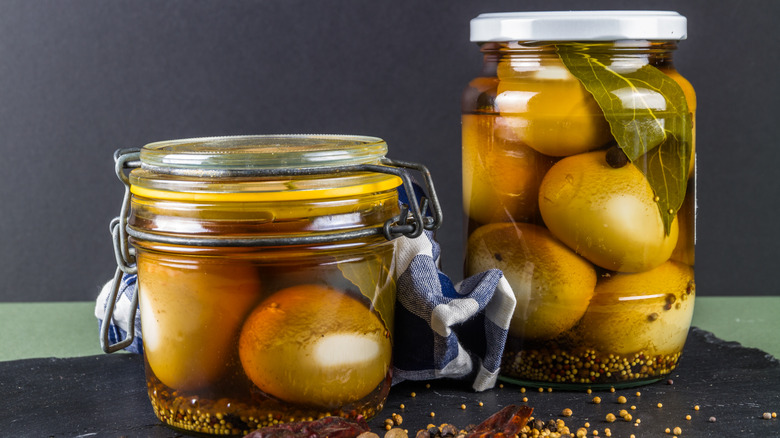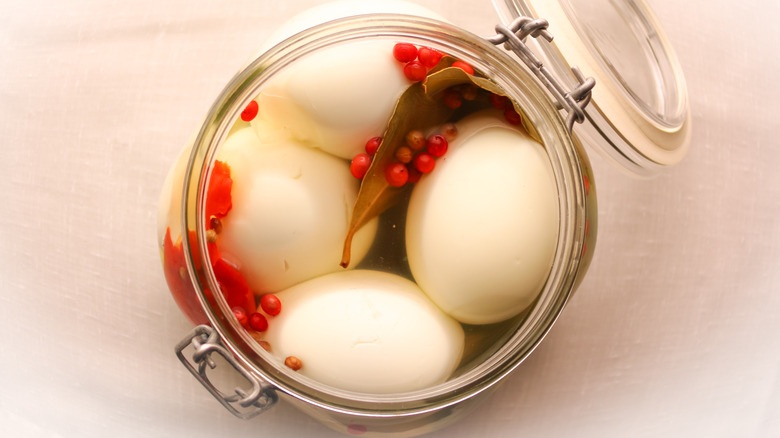What Makes German-Style Pickled Eggs Unique?
Pickling is magic, as it preserves and transforms a wide range of foods. Of course, there are classic options like pickled red onions or dill pickles but the technique works terrifically with proteins too. There are the dive-bar favorite pickled hot dogs and for even more snacking joy, German-style pickled eggs. This delicious food packs an aromatic and textural punch, with a hard-boiled egg delectably infused in an aromatic brine.
It's a preparation method that's especially popular in Germany, where the dish is called "soleier." With origins dating back to the 1700s, it's a food that emerged when poultry producers had an excess of eggs. They'd boil the eggs and throw them into a brine, sometimes also used for pickles. Using this technique, they were able to enjoy the snack for months afterward.
Today, the tradition continues with quite an aromatic selection from the spice pantry that makes it into the mix. Selections like caraway, bay leaves, peppercorns, cloves, mustard seeds, and celery seeds are also used. For an extra bite, cooks integrate sliced onions, garlic, mustard, plus some sugar or juniper berries to round out the result. This variety of ingredients is similar to other German classics like bratwurst or sauerbraten, which make the perfect pairing to this type of pickled egg.
German-style pickled eggs pack in many spices and aromatics
There wouldn't be a pickled egg without vinegar and it's an especially critical ingredient in German-style eggs. To achieve the ideal consistency, around 5% vinegar is the ideal acid concentration. Any higher ratio or if stored for a longer duration, the eggs turn unpalatable rubbery. As a result, apple cider vinegar is an ideal candidate for the job.
Such a combination of spices and vinegar makes German pickled eggs stand out from other varieties. Their most unique quality is the pairing with mustard, whether mixed into the brine or served alongside in place of the yolk. Meanwhile, the Dutch pickle their eggs with beets, while the English pub style uses malt vinegar and sometimes a spicy pepper. Plus, modern renditions reach for many various components like thyme and tarragon in a herby pickled egg.
A variable assortment of such ingredients wind up in American-style pickled eggs, a result of the nation's diverse immigration. Pickled eggs were carried over to North America from the times of pilgrims, with even the German rendition found during the Revolutionary War period. It's a beautiful fusion of flavors but there's still a special merit to the traditional German take. Enjoyed with a dab of mustard and a beer — it's a generations-old classic.

